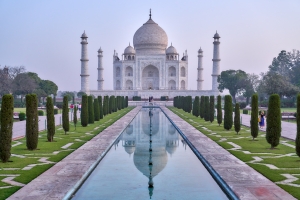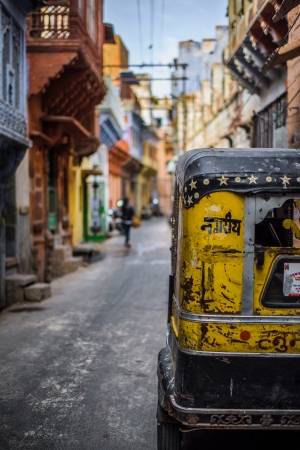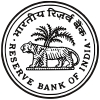India Payments Research
India fintech unicorn Paytm is shifting its focus to merchants in a bid to better compete with rivals Google Pay and Walmart-backed PhonePe. Paytm lags those two firms in its share of the transactions on India's state-backed real-time UPI payments system. As of October, UPI handled more than 50% of India's digital transactions, according to research firm Razorpay.
Credit Suisse reckons that India’s payments market could reach $1 trillion by 2023. Four or five major firms are likely to vie in India's payments market after consolidation, analysts say. A duopoly like Ant Financial-WeChat Pay in China is unlikely in the India market.
2020 Top Ten Asia Fintech Trends #8: Competition intensifies in India's digital payments market
India was one of the world's hottest fintech markets in 2019 with related venture-capital investment in the first half of the year reaching $286 million. Investors are especially keen on the payments segment, which an Assocham-PWC India study predicts will more than double to $135.2 billion in 2023 from $64.8 billion in 2019.
Why is India's top fintech startup struggling?
Paytm is not just the most valuable Indian fintech firm: At US$16 billion, the digital payments company boasts the highest valuation of any Indian startup. It has long been considered a standout on the Indian fintech scene and counts Softbank and Ant Financial as its primary backers. Together, those two heavyweight investors own 60% of Paytm. In a recent interview with The Financial Times, Paytm founder Vijay Shekhar said, "We see ourselves on a healthy path."
Chinese investment in India has flourished over the past decade, reaching a $8 billion as of December 11, 2019, as compared to $200 million a decade earlier in 2009. A significant amount of that investment is coming from China’s two tech giants, Alibaba and Tencent, which have been aggressively investing in Indian start-ups. Many of these start-ups have crossed the $1 billion valuation threshold to become unicorns.
Alibaba and Ant Financial have invested resources in five unicorns out of the six companies they’ve invested in, while Tencent has done the same for seven out of twelve startups they’ve funded. This would mean that Alibaba and Tencent have invested in approximately half of the 31 unicorns in India, according to a report from Iron Pillar. A six-fold increase of Chinese investment in India was recorded between 2013 and 2014, coinciding with the strategic restructuring of Alipay to Ant Financial. Experts believe that a majority of Chinese capital in India come from Alibaba and Tencent, or its subsidiaries.
Can India do without super apps?
2019 was the year of the aspirational super app - aspirational because no platform has come anywhere near the dominance of China's WeChat. WeChat never branded itself as a super app. It simply became one thanks to a timely arrival, its appeal to Chinese users and lack of serious competition.
Rebranding a successful tech startup as a potential super app is a good way to keep the funding gravy train flowing. What could be more enticing to investors? Just ask the Southeast Asian ride-hailing giants Grab and Gojek. But China is a unique market, where users are happy to sacrifice choice for convenience and a frictionless experience. Elsewhere, notably India, users prefer different apps for different functions.
Paytm plans to slash losses by 1/3 to $400 million
India fintech sensation Paytm plans to reduce its losses by 1/3 to $400 million annually, according to The Times of India. Softbank and Alibaba-backed Paytm is India's most valuable tech startup with a $10 billion valuation, but has been burning cash at a torrid clip for years, like many of its peers across the region. In the 2019 fiscal year, Paytm lost a whopping $600 million, up 300% over the same period a year earlier.
Investors from China and US race to capitalize on India's rapid digital payments growth
India has long been a non-allied country. Amidst rising Sino-American tech competition, India's policy has not changed. It leans towards neither Washington nor Beijing. As India's digital payments sector surges, Chinese and U.S. tech investors shut out from each other's markets are instead competing intensely on the subcontinent. Consolidation will occur as India's digital payments market matures, as it did in the e-commerce, ride-sharing and food-delivery segments, analysts say.
India's cashless dream remains elusive
India has one of Asia's most vibrant fintech ecosystems, highlighted by payments unicorn Paytm with a valuation of US$10 billion. In the first quarter of the year, the subcontinent attracted the most VC fintech investment of any country in Asia, beating out digital finance juggernaut China.
Given the excitement surrounding India's fintech scene, it is easy to overlook cash's continued paramountcy in the Indian economy, accounting for 95% of transactions. Indeed, cash not only remains the primary payment method in India, its use is growing. The reason is straightforward: Cash is convenient - especially considering India's large informal economy. The fintech ecosystem must penetrate far deeper into the Indian economy before it can begin to displace cash.
WhatsApp Payments close to launching in India
WhatsApp has moved one step closer to launching its payment business in India by setting up local data storage facilities, according to India's The Economic Times. As a condition of market entry, the Reserve Bank of India (RBI) requires digital payment providers to first set up local data storage facilities and then submit an audit report to the central bank. Market insiders say that WhatsApp Payments is expected to go live with its Unified Payments Interface-based service with ICICI Bank. Services through Axis Bank, HDFC Bank and SBI are likely to follow, they say.
Paytm’s payments bank (PPB) has become India's first profitable business of its kind, posting a net profit of Rs19 crore ($2.7 million) in fiscal year 2018-19. PPB says that it accounts for nearly a third of all mobile banking transactions in India and processes over Rs3 lakh crore worth of digital transactions per year, second only to India's top lender State Bank of India. With over Rs 500 crore deposits in its savings account, PPB is the top payments bank in India in terms of deposits.
More...
India's fintech giants roll out credit cards
India's fintech giants Paytm and Ola are both entering the credit-card business, a move that should boost cashless transactions in an ascendant payments market estimated to reach $1 trillion by 2023. Digital wallet Paytm is cooperating with Citibank while ride-hailing juggernaut Ola is working with State Bank of India and Visa. Credit cards could offer Paytm a way to better compete with the U.S. tech giants who recently entered India's payments segment. For Ola, credit cards are a new way to generate revenue from its huge userbase. Visa and SBI hope to tap Ola's massive userbase to grow their own customer pool.
Ironically, both fintech giants are turning to a traditional financial platform to grow their businesses. Perhaps there is some truth after all to bromides about how financial incumbents and upstarts have more reasons to work together than compete with each other.
Facebook is reportedly developing a cryptocurrency that will be backed by the U.S. dollar for the Indian remittances market. Known as a "stablecoin," the digital currency will allow users of Facebook's WhatsApp messaging app to transfer money. Stablecoins have many applications besides remittance, including peer-to-peer payments, the purchase of goods and services online, and trading of digital currency. Facebook's digital currency is at a nascent stage and won't be released for some time, according to a December Bloomberg report.
Previously, WeChat has been the world's dominant chat & payment app with over 1 billion WeChat users worldwide, spread over 15 countries; 200 million of which use the app's payment function. Could WhatsApp's December 2017 release of a payment enabled WhatsApp app in India find similar success?
Hike messenger, a popular phone messaging service app in India, has recently decided to introduce payment services on its platform.











